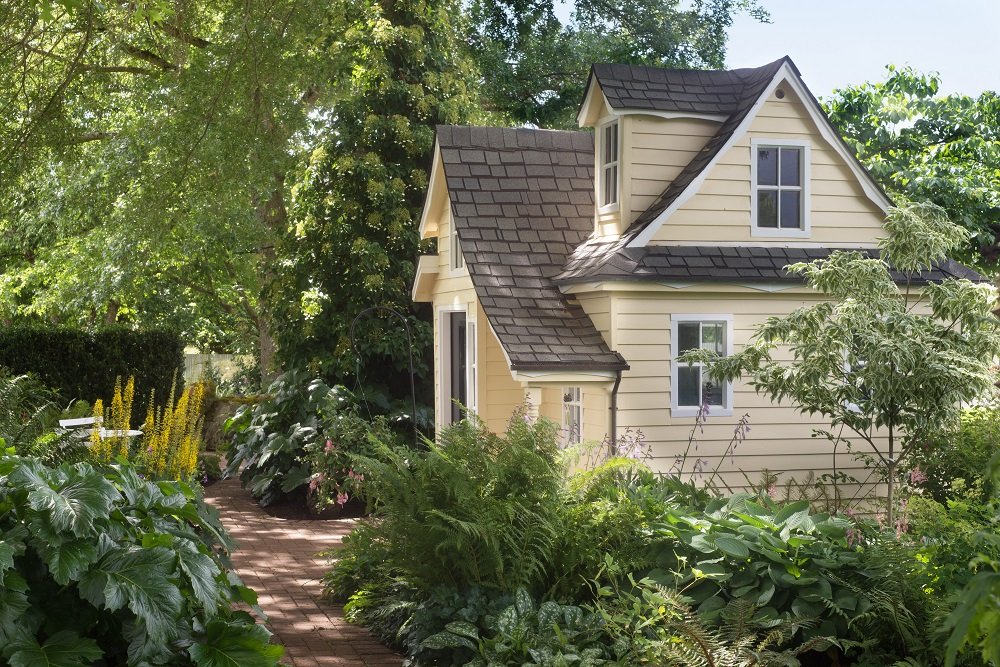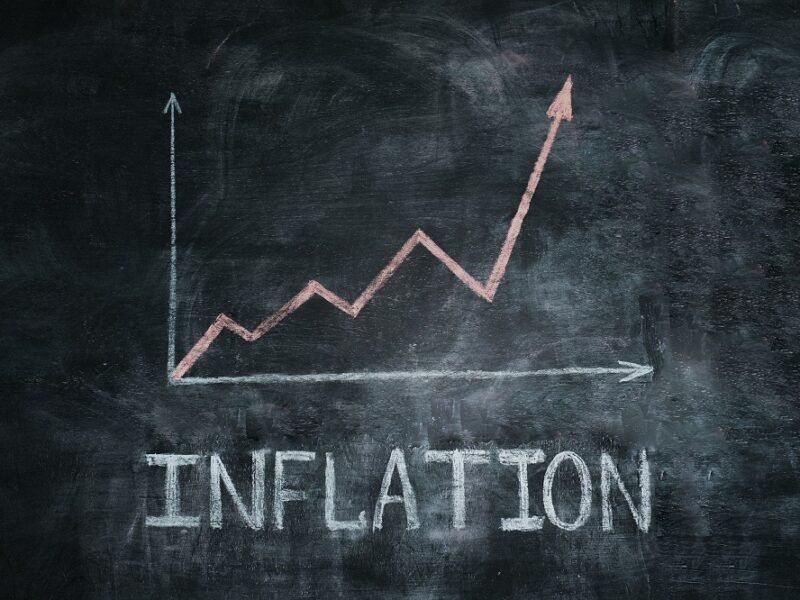Why I Bought a Small but Expensive Home

Like many, I have always interpreted the American Dream to mean that owning my own home and a slice of land was the epitome of freedom. Despite some naysayers out there, I still feel that way. However, a larger home or more land is not necessarily a better American Dream.
After churning through homes while working at various jobs across the country I have concluded that small but expensive homes or condos in urban areas present an intriguing value proposition.
In this article I will go over why I have found buying small but expensive homes to be a great way to make and save money. Some of what I have found is obvious but there are other things that cropped up after diving in that have been game changers for our family budget.
Table of Contents
What do I Mean by Expensive?
To cut to the chase, expensive means a high cost per square foot as it relates to larger homes in the same general area. I use the word expensive in a relative way. Being expensive is determined by an individual’s circumstances and the disparity between urban and suburban housing.
Buying a small but expensive home that is the same price as a larger home suggests there are other factors than size that impact its price. My suggestion in this article is that the size of a home may be one of the biggest factors that affect a person’s budget despite the price being similar at the outset.
What Makes my Home Expensive?
So how is the price per square foot impacted by various factors? An article by opendoor door suggests that there are 8 key factors that affect the price. Here is a rundown of the list:
- Comps – Comps are homes that are comparable to yours and have sold recently in the area. The reason comps play such a large role in your home price is this is how an appraiser derives most of a homes value. Its how they justify the market price of a home so that banks (the lender) can appropriately judge its risk when offering a mortgage.
- Location – Everything from school districts to local traffic can be derived from a location. If your home is in an urban environment, the square footage of the home is likely on land that is scarcer thus of a higher value. Out in the country, where land is bountiful, the premium paid will be much less.
- Home Size and Usable Space – Home size can itself be a defining factor in price. The reasons are obvious. The more space that is available to be lived in can result in a higher total price but also may dilute the price per square foot. Much like when buying 5 dozen eggs… its cheaper per egg than just buying 1 dozen.
- Age and Condition – Obviously, if a home is in disrepair the underlying value of the home will take a hit. Additionally, the age of the home that may imply differing building standards from today’s modern expectations can deal a blow.
- Upgrades and Updates – A home that answers today’s expectations for style and convenience can a give a boost to the market price. Sometimes, however, a simple coat of paint and updated appliances are all that is needed to spruce the place up.
- Local Market Dynamics – Each housing market is completely different. Employers pay different salaries in different areas. Multigenerational homes maybe the norm in one city but unheard in another. Small rural towns may buckle under the stress of a single new factory coming (or going) changing housing requirements for an entire population. Each market is different and thus the price you should expect to pay will need to be specific to wherever you are looking to purchase.
- Economic Indicators – Various economic indicators may help highlight whether your area is up and coming or on a decline. Wage growth, employment, and demographics (specifically median age) may help determine the expectation for future price appreciation.
- Interest Rates – In a way, interest rates and thus mortgage rates affect the price of a home much like a bond. When rates go up, the value of a home goes down and vice versa. If interest rates are expected to trend upward, you may find that the ability for someone to buy your home will go down since the price to service the mortgage debt goes up. Thus, the value of your home may not appreciate like you would like due to affordability of the market.
Do Homes Appreciate at Different Rates
Urban or suburban? Which appreciates faster? Anecdotally, I’ve read numerous articles touting that both, at one time or the other, was king of price appreciation. But, by a large from what I can tell, it’s a wash… at least on a percentage basis.
Urban homes and condos are smaller than rural ones for obvious reasons… there is less space. But the price appreciation is about the same. This means that buying small and expensive homes in urban environments will return about as much for a similarly priced home in the suburbs with more space.
What does this mean? Why did I even write this article? The secret sauce for coming out ahead when buying a smaller home has more to do with the lifestyle.
Whether it’s because you can cram less things in your smaller space, need less insurance, have a shorter commute due to being in an urban area, or need a smaller budget to keep the place renovated… the impact is substantial.
Benefits of Buying Small

Buying small but expensive homes or condos in urban areas allows you forces you to streamline your finances. This is because living in a smaller area ensures that certain choices must be made. Here is a list of how buying a small home is beneficial to your finances even if the property itself costs the same amount as a larger home somewhere else.
- Less Places to Put Things – When I go to the store, now that I live in a place that is less than 25% the size of my last home, I must think very hard if I have a place to put anything I purchase. If you keep a strict rule of not caving to getting a storage unit, you will find that you spend substantially less money on impulse purchases. You just will have nowhere to put it!
- Lower Property Insurance – It costs less to insure a smaller place. When you buy homeowner’s insurance it usually covers only the replacement of the structure. It doesn’t matter how much the underlying land is worth. Having to rebuild a smaller home is just cheaper than a larger one… because of this you should be able to save on your annual premium.
- Less Parking Spots – Having a smaller home will also likely mean that you will have a smaller garage. In my case I only have 2 parking spaces in a parking garage. There is no option to ever get a 3rd. The number of vehicles you will ever own at one time will be limited when you live in a smaller dwelling. This also means the number of cars you have to register and insure goes down as well!
- Less Gas for a Commute – If you live in an urban area, the distance you will need to travel to do things will likely go down. This may include your commute to work, restaurants, school or wherever. Less gas also implies less miles driven, gas, and time spent in traffic.
- Smaller Vehicle Requirements – If your smaller dwelling is a condo or in a more urban area you may find that the need for a large SUV is no longer necessary. Having a smaller car that is nimbler in tight traffic patterns and is easily parked may be the features you prefer. Generally, smaller vehicles mean smaller price, less gas, and less insurance. The effect is compounded.
- Lower Reno / Maintenance Costs – Just like your Homeowner’s Insurance, the price to maintain and keep your home up to date with renovations is cheaper. Less square feet means less flooring, walls to paint, plumbing, electrical and appliances that need to be budgeted for.
- Lower Utility Bills – A smaller home means less volume that needs to heated and cooled. In the case of maintaining any vegetation or landscaping the requirement for water will also take a cut. Lower utility costs in an era where conservation is valued can help both your pocketbook and the future viability of humanity… a win-win for sure!
Summary
In summary, my experience downsizing in square footage but not necessarily in total home price has done nothing but save me an incredible amount of money. The savings come from the ancillary benefits of smaller home ownership.
Savings on not filling my home with junk, vehicle costs, maintenance, utilities, and property insurance has not meant that home doesn’t appreciate like a bigger home. I can get the best of both worlds. My smaller home has been a blessing and I hope it can be for you as well. If you enjoyed this article (or, if you have a bone to pick) throw your comments down below!
Guy Money
As a formally trained Data Scientist I find excitement in writing about Personal Finance and how to view it through a lens filtered by data. I am excited about helping others build financial moats while at the same time helping to make the world a more livable and friendly place.



